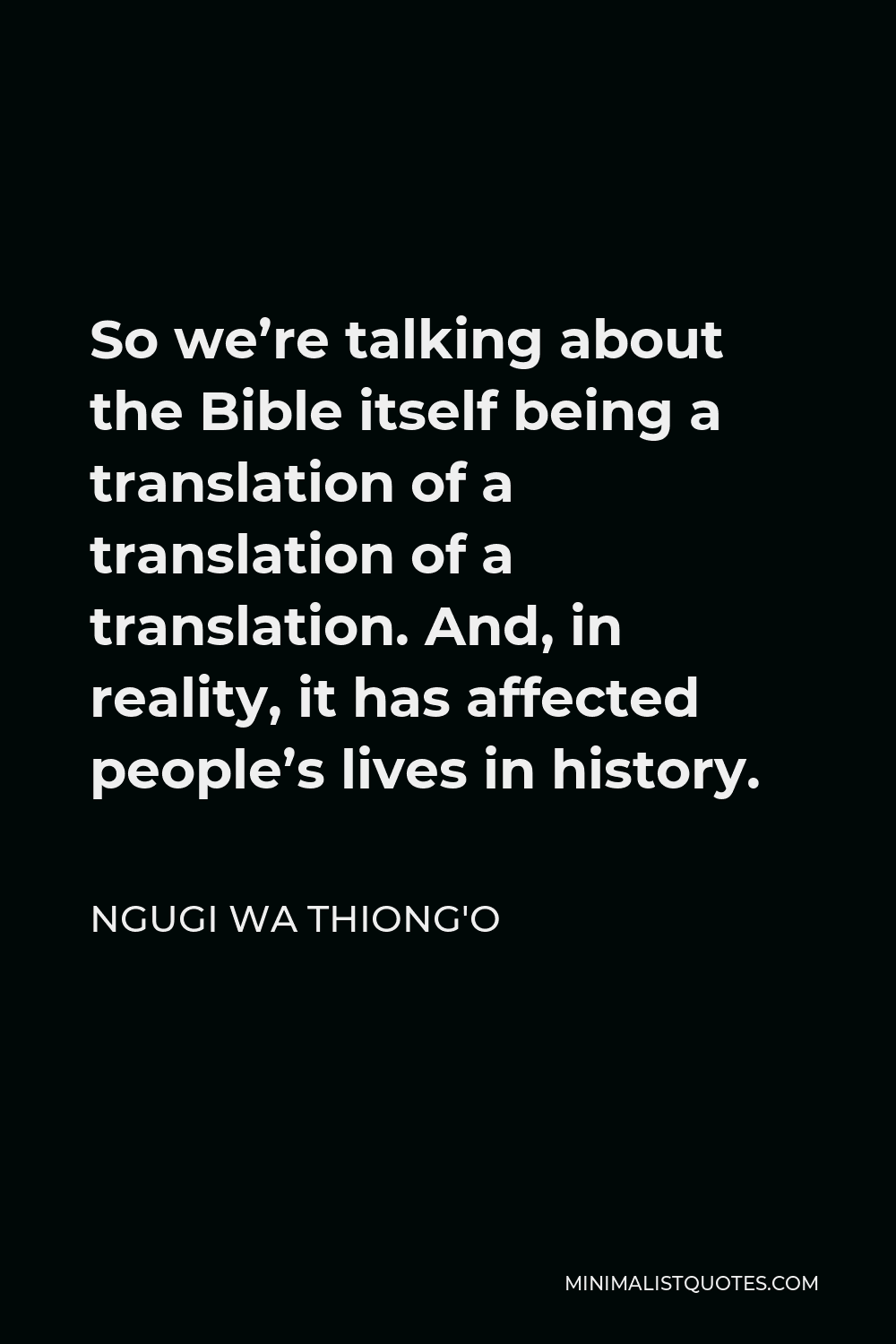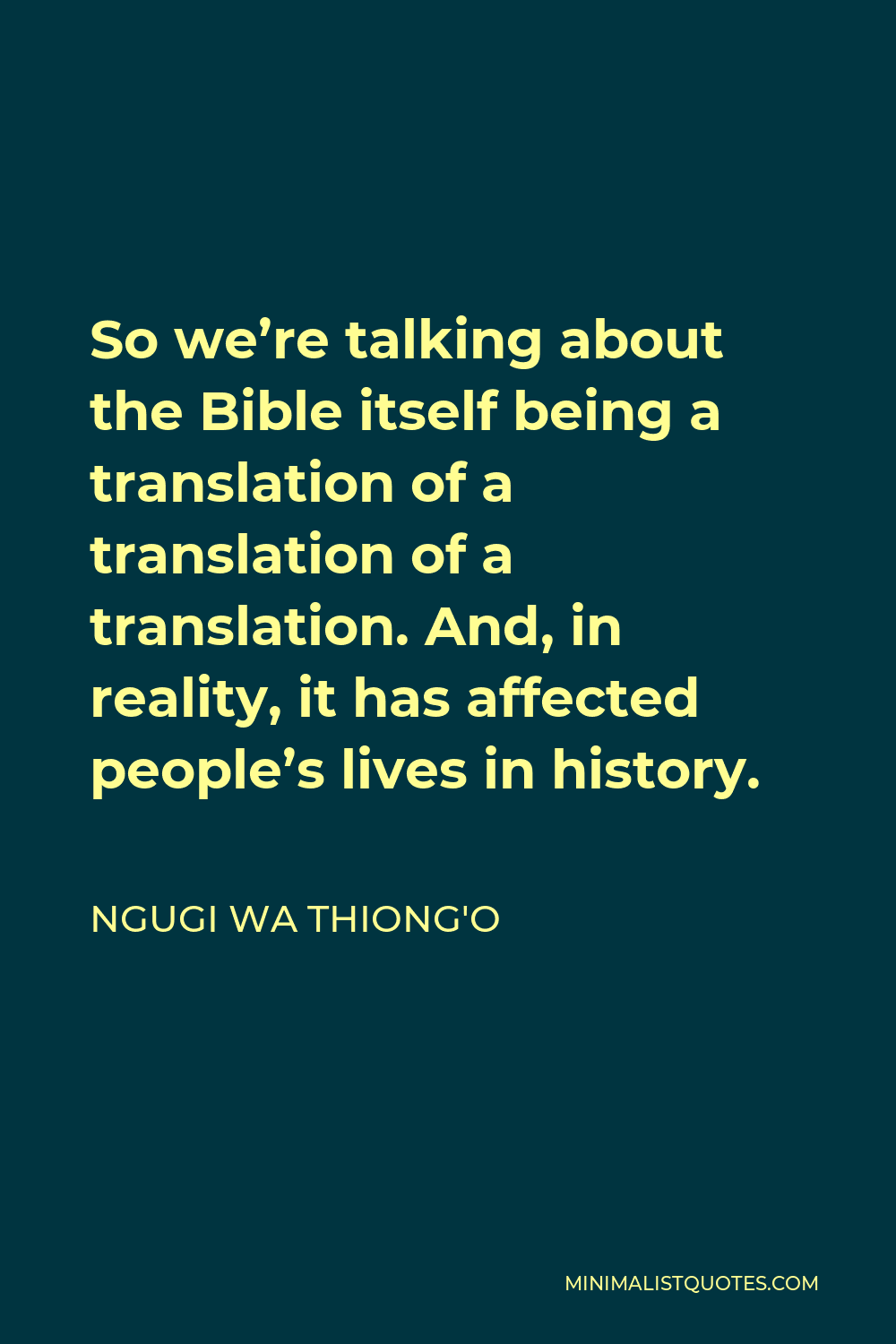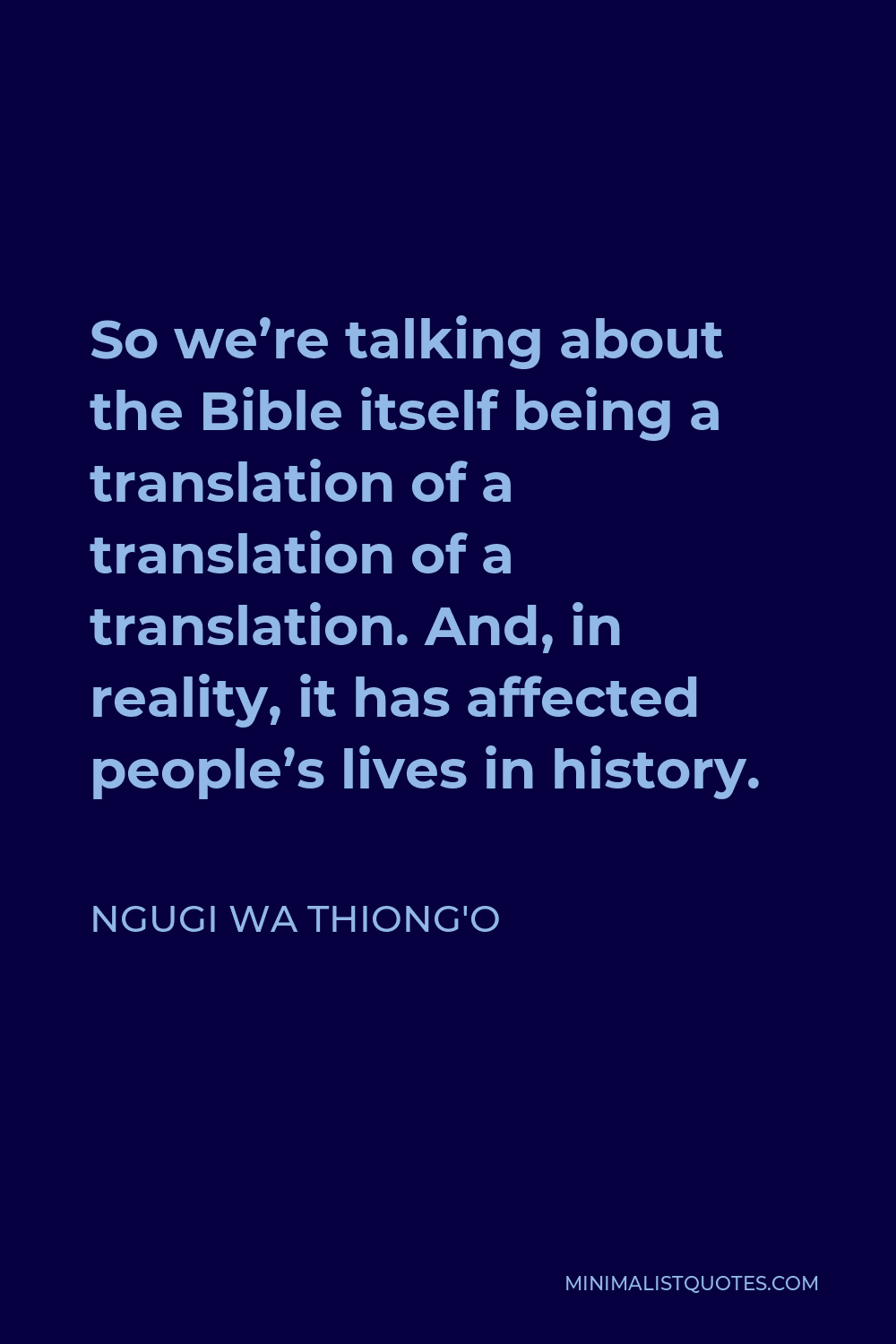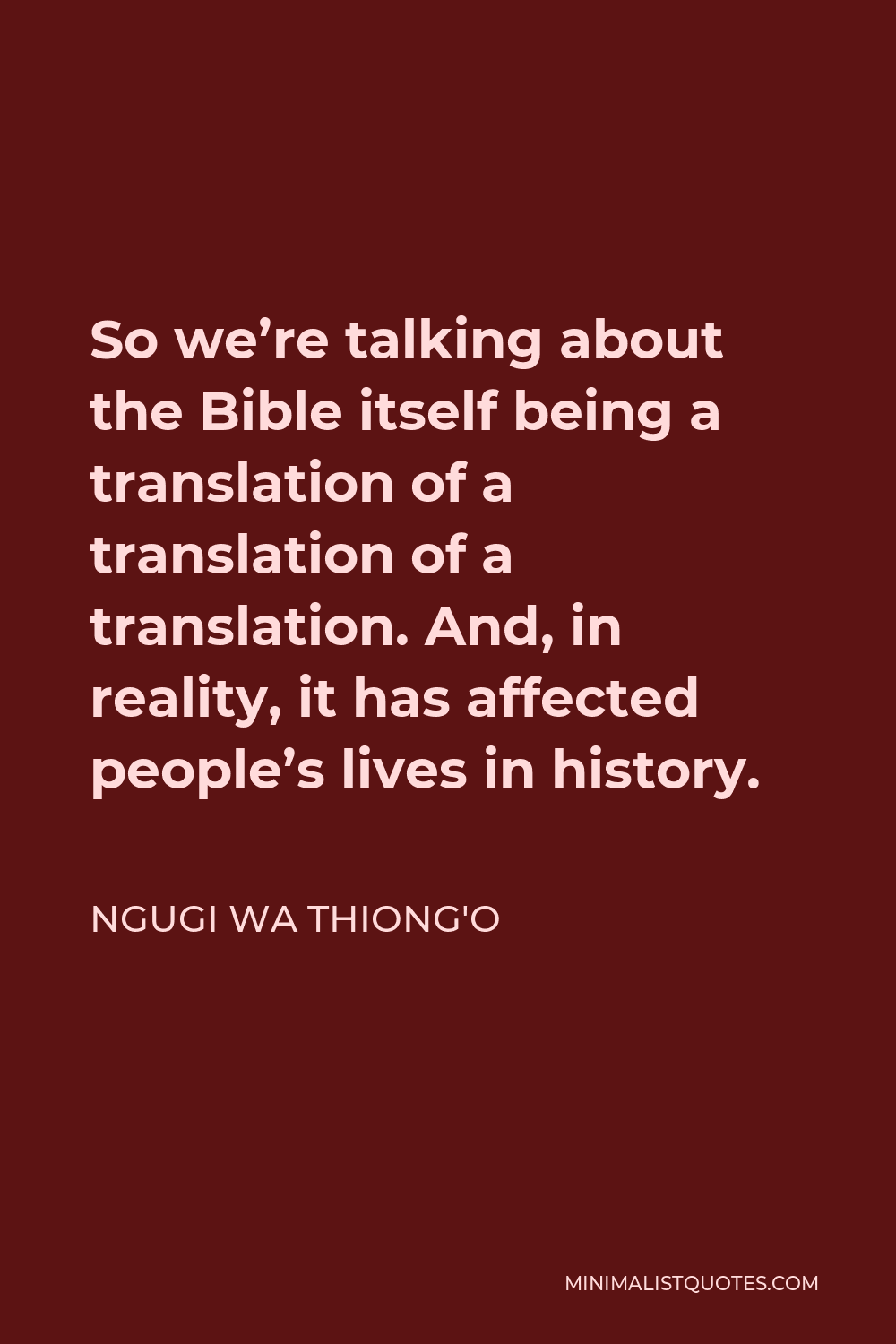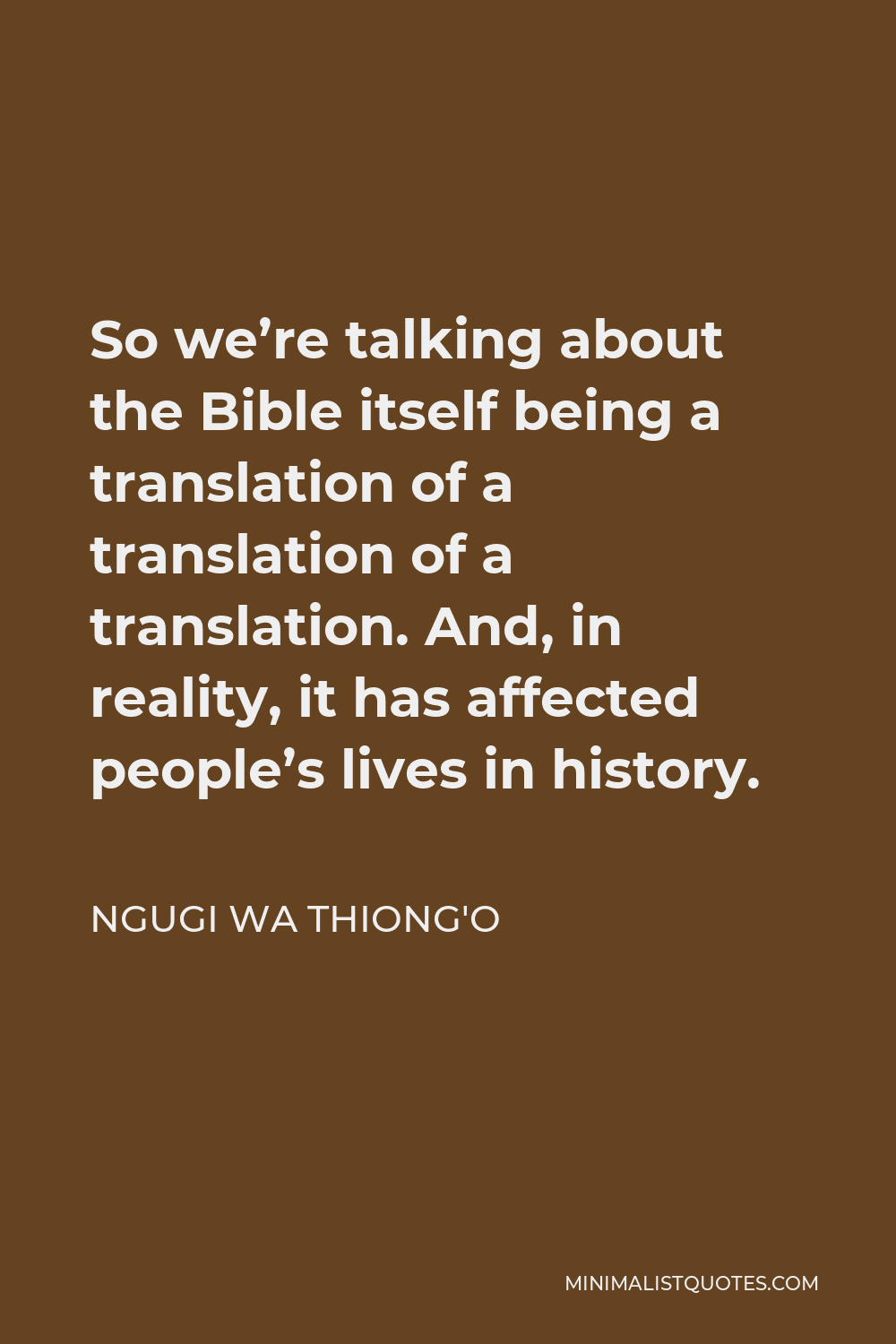I was wondering why I was put in prison for working in an African language when I had not been put in prison for working in English. So really, in prison I started thinking more seriously about the relation between language and power.
NGUGI WA THIONG'OSo we’re talking about the Bible itself being a translation of a translation of a translation. And, in reality, it has affected people’s lives in history.
More Ngugi wa Thiong'o Quotes
-





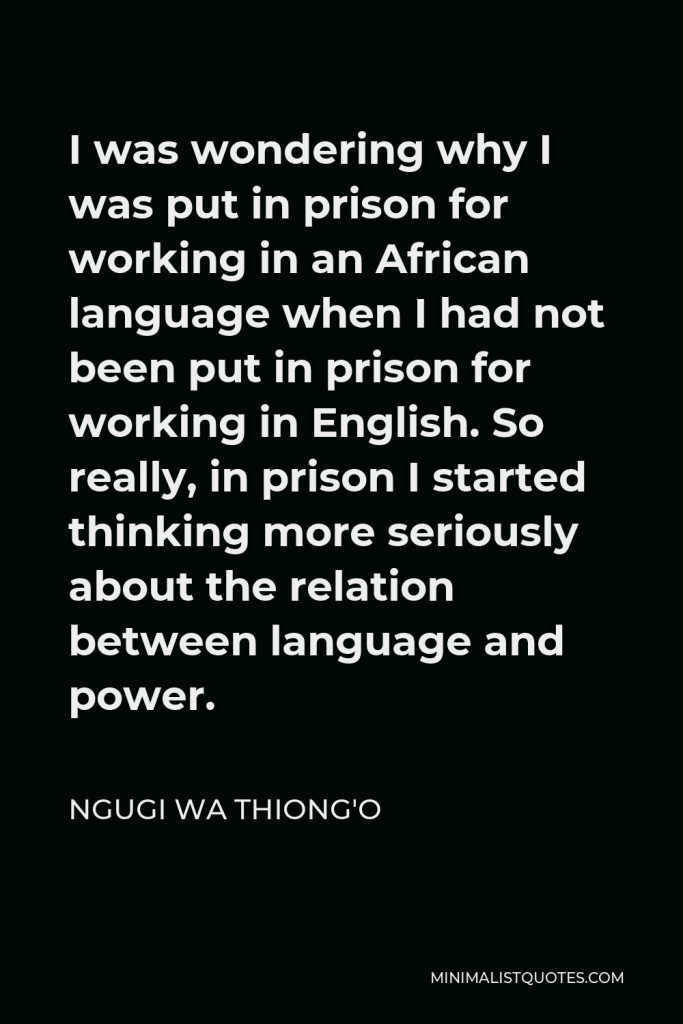

-





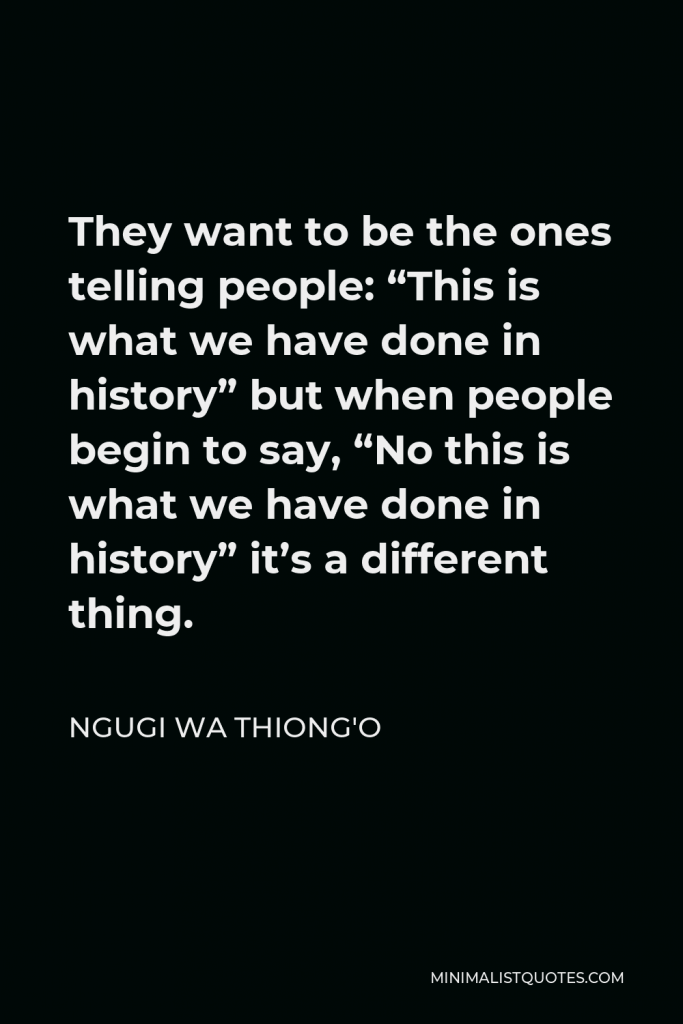

They want to be the ones telling people: “This is what we have done in history” but when people begin to say, “No this is what we have done in history” it’s a different thing.
NGUGI WA THIONG'O -





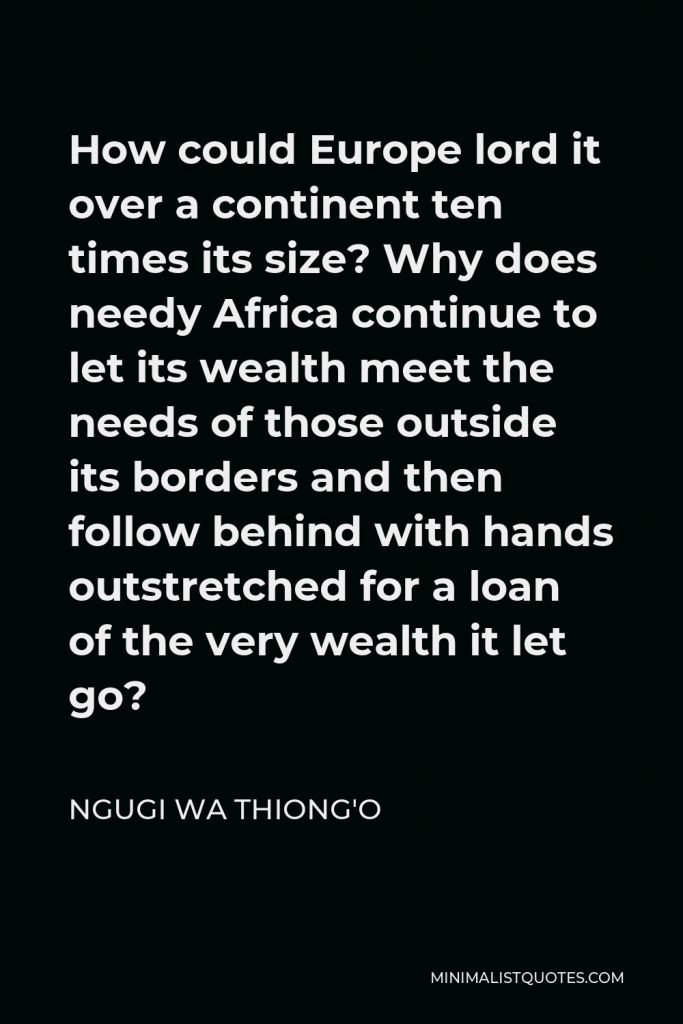

How could Europe lord it over a continent ten times its size? Why does needy Africa continue to let its wealth meet the needs of those outside its borders and then follow behind with hands outstretched for a loan of the very wealth it let go?
NGUGI WA THIONG'O -





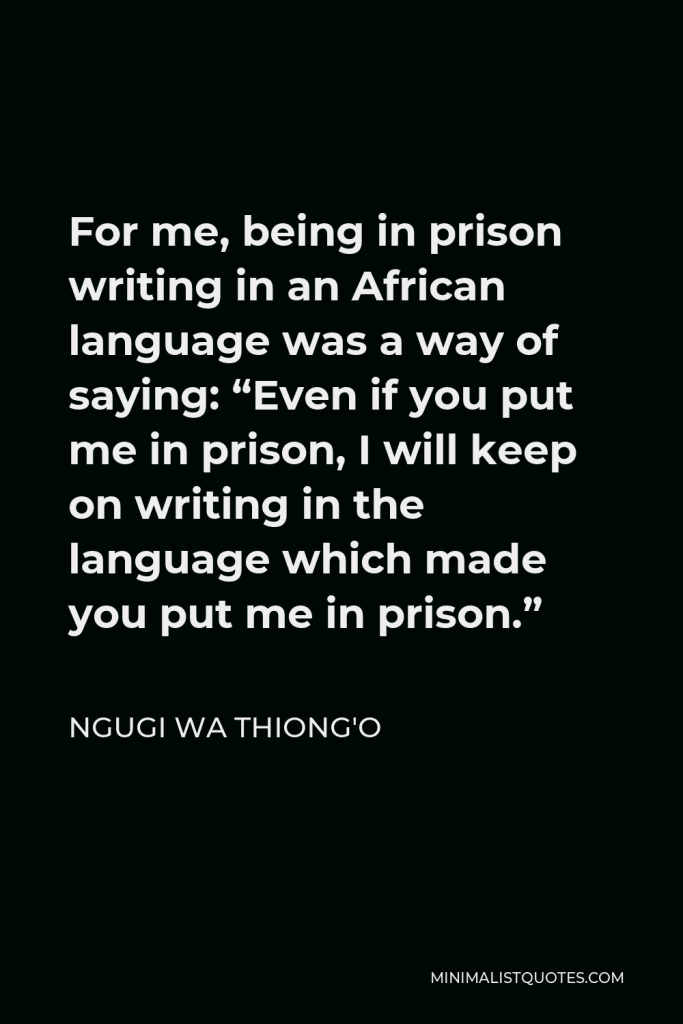

For me, being in prison writing in an African language was a way of saying: “Even if you put me in prison, I will keep on writing in the language which made you put me in prison.”
NGUGI WA THIONG'O -





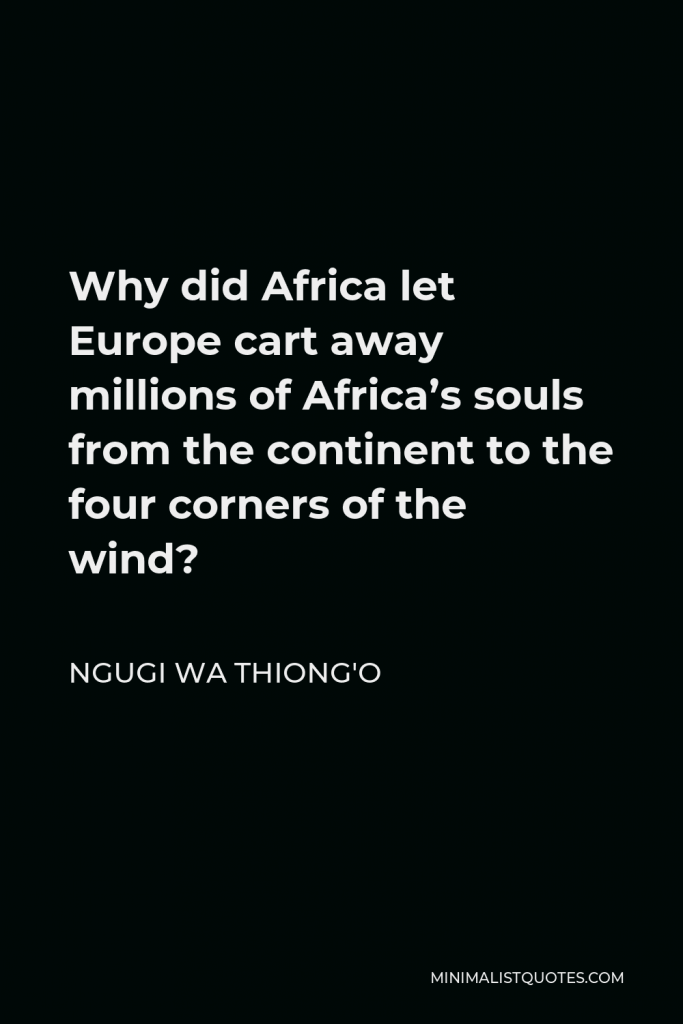

Why did Africa let Europe cart away millions of Africa’s souls from the continent to the four corners of the wind?
NGUGI WA THIONG'O -





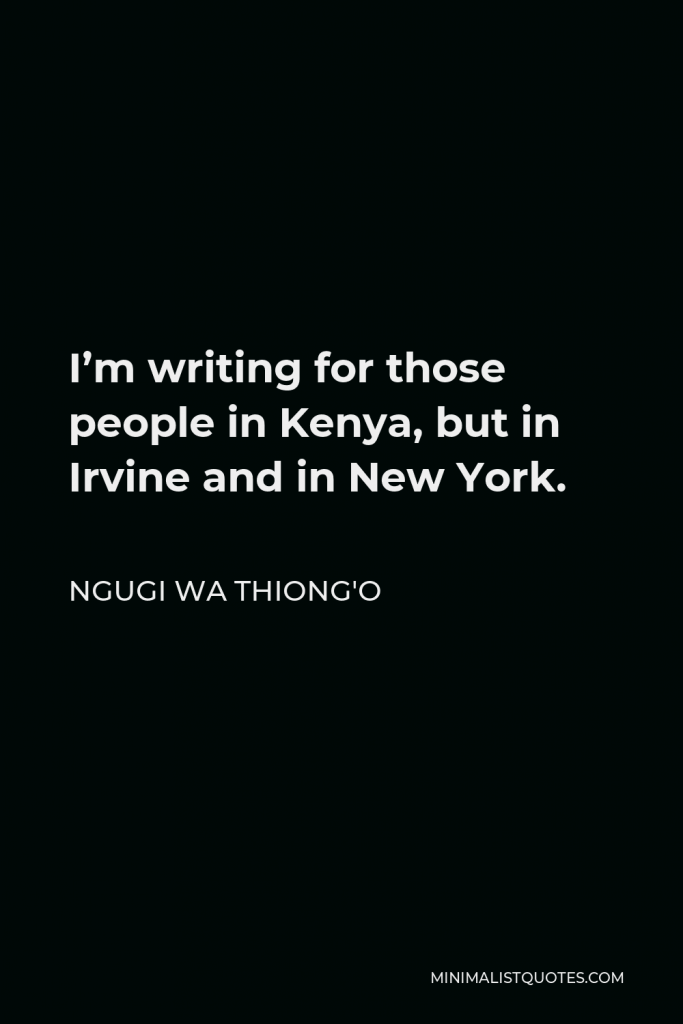

I’m writing for those people in Kenya, but in Irvine and in New York.
NGUGI WA THIONG'O -





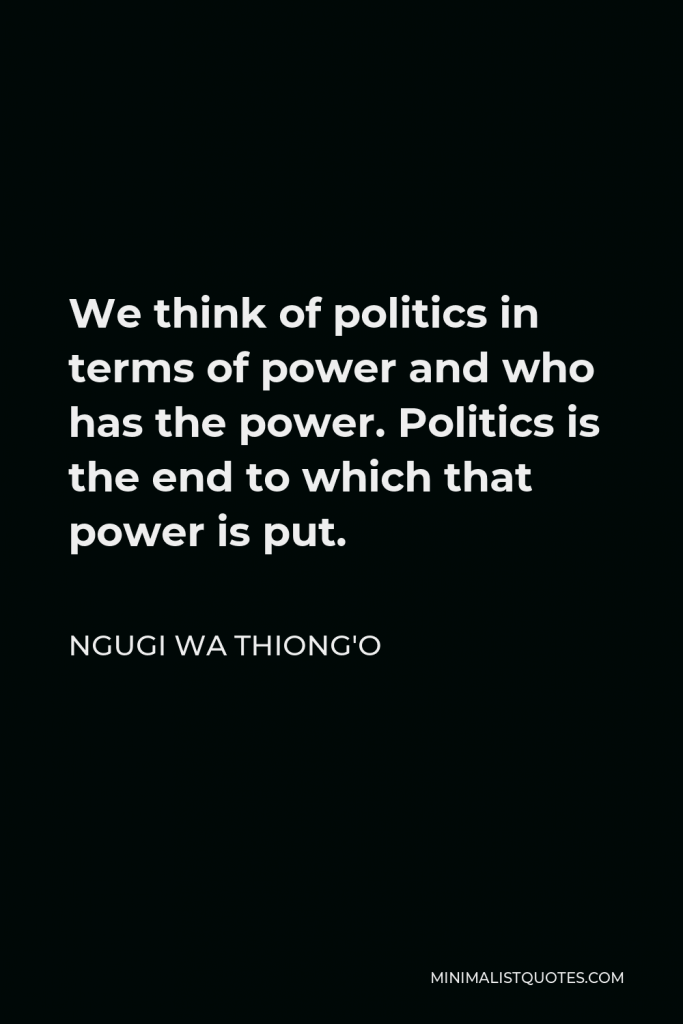

We think of politics in terms of power and who has the power. Politics is the end to which that power is put.
NGUGI WA THIONG'O -





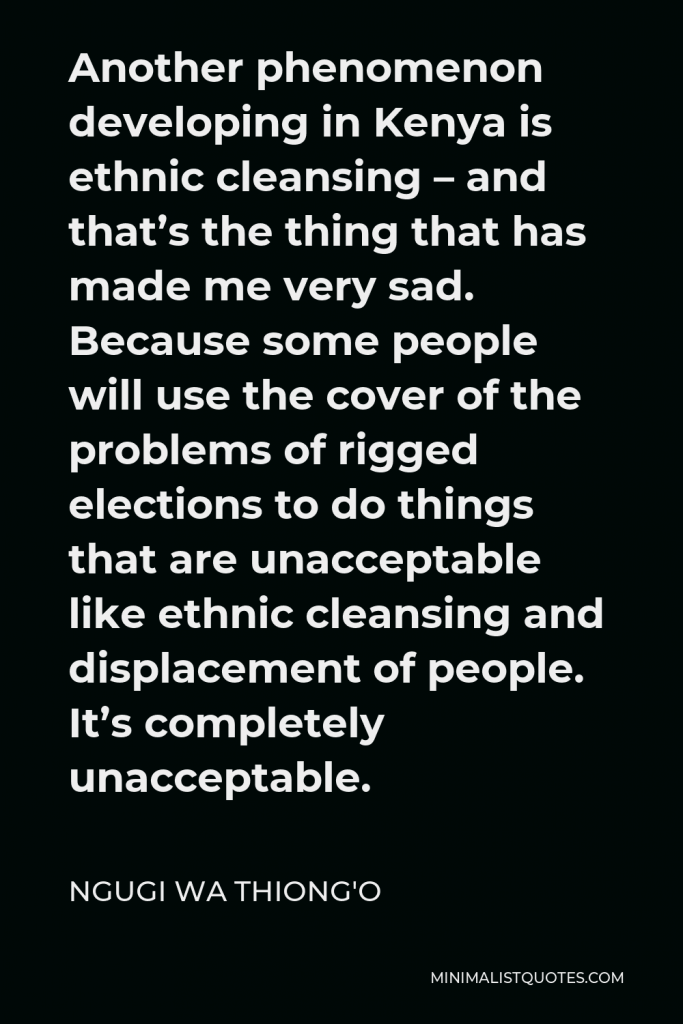

Another phenomenon developing in Kenya is ethnic cleansing – and that’s the thing that has made me very sad. Because some people will use the cover of the problems of rigged elections to do things that are unacceptable like ethnic cleansing and displacement of people. It’s completely unacceptable.
NGUGI WA THIONG'O -





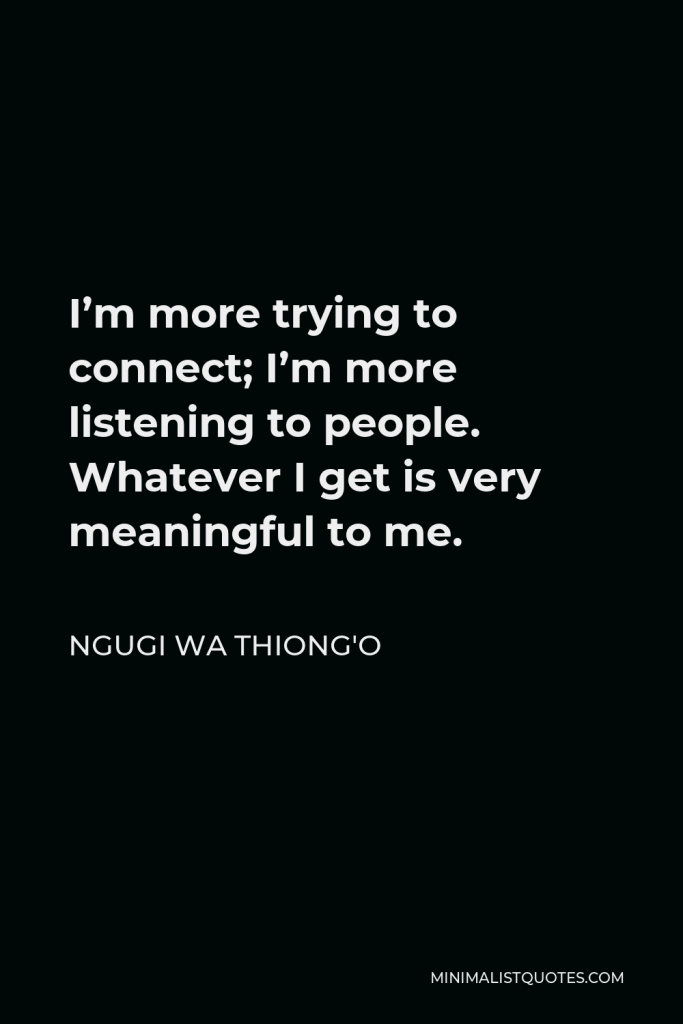

I’m more trying to connect; I’m more listening to people. Whatever I get is very meaningful to me.
NGUGI WA THIONG'O -





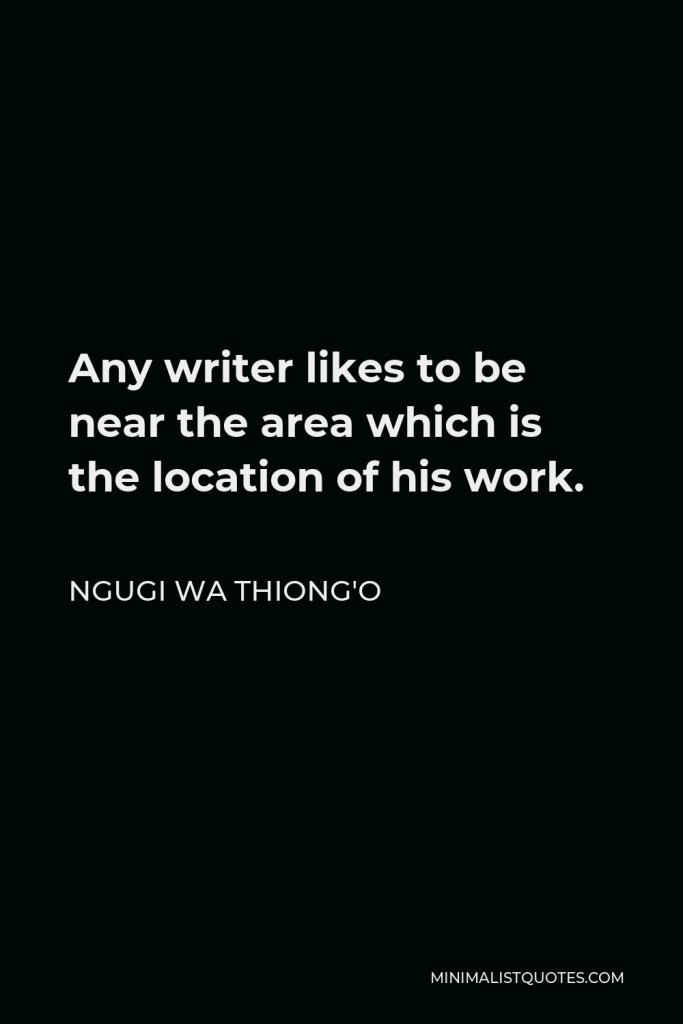

Any writer likes to be near the area which is the location of his work.
NGUGI WA THIONG'O -





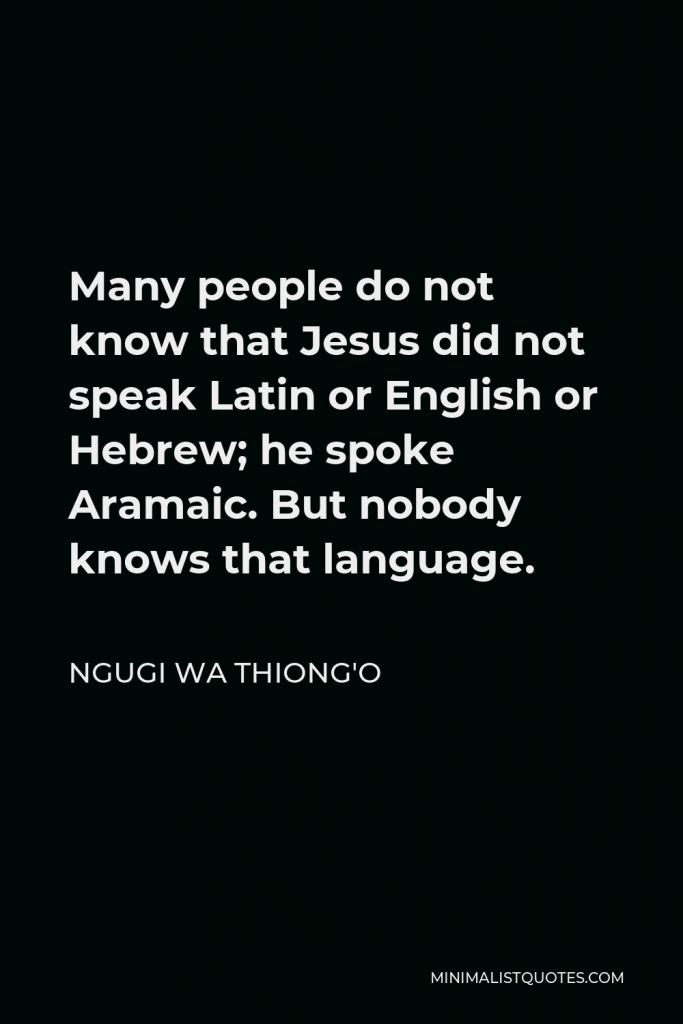

Many people do not know that Jesus did not speak Latin or English or Hebrew; he spoke Aramaic. But nobody knows that language.
NGUGI WA THIONG'O -





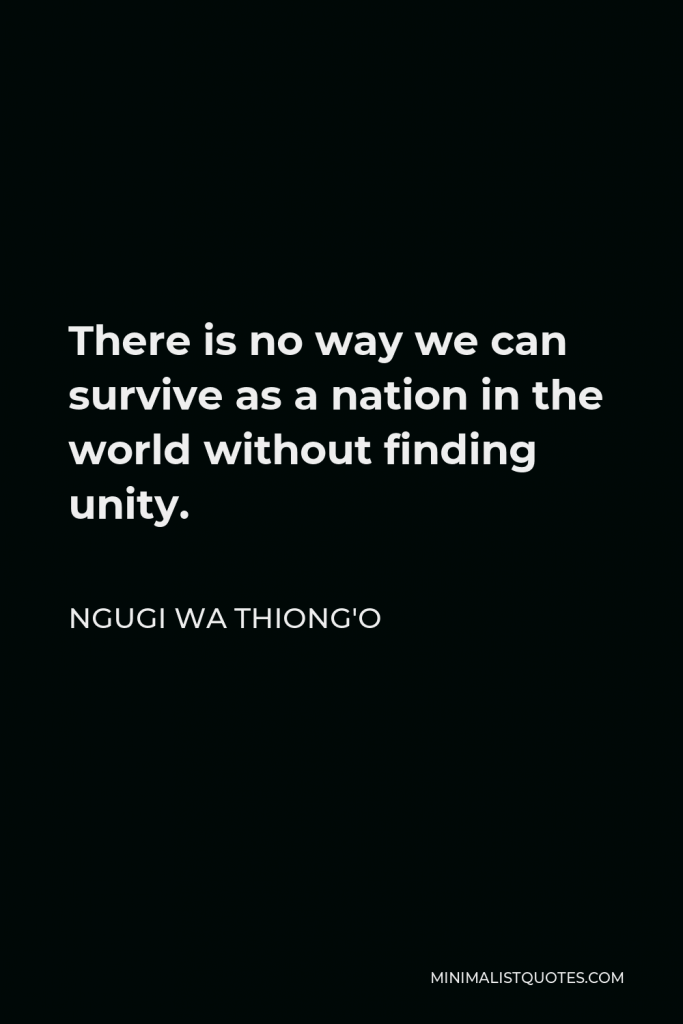

There is no way we can survive as a nation in the world without finding unity.
NGUGI WA THIONG'O -





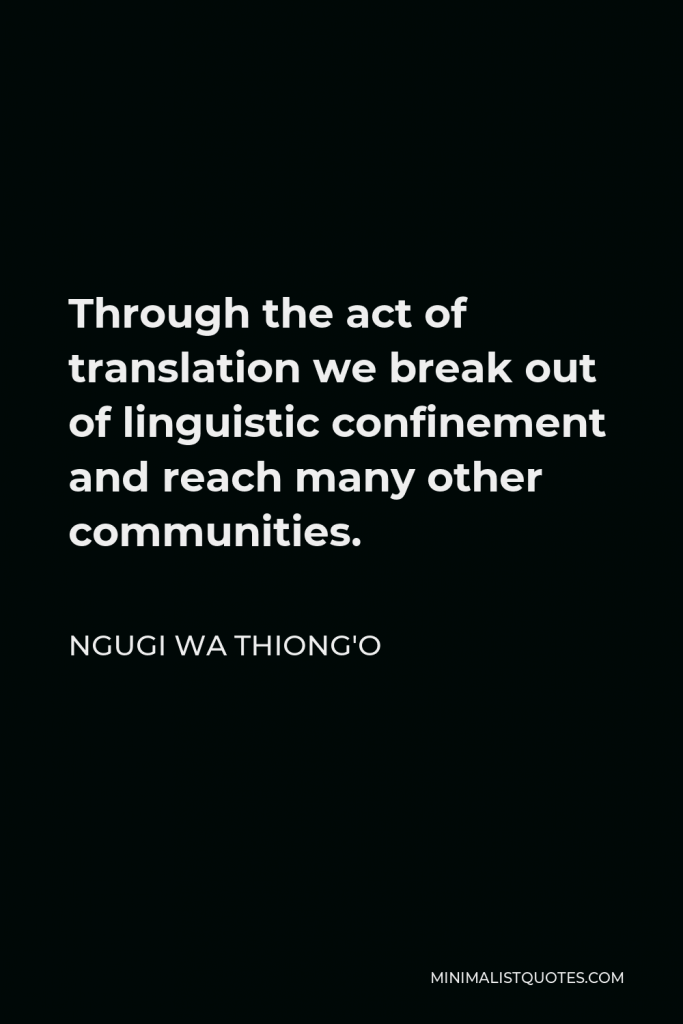

Through the act of translation we break out of linguistic confinement and reach many other communities.
NGUGI WA THIONG'O -





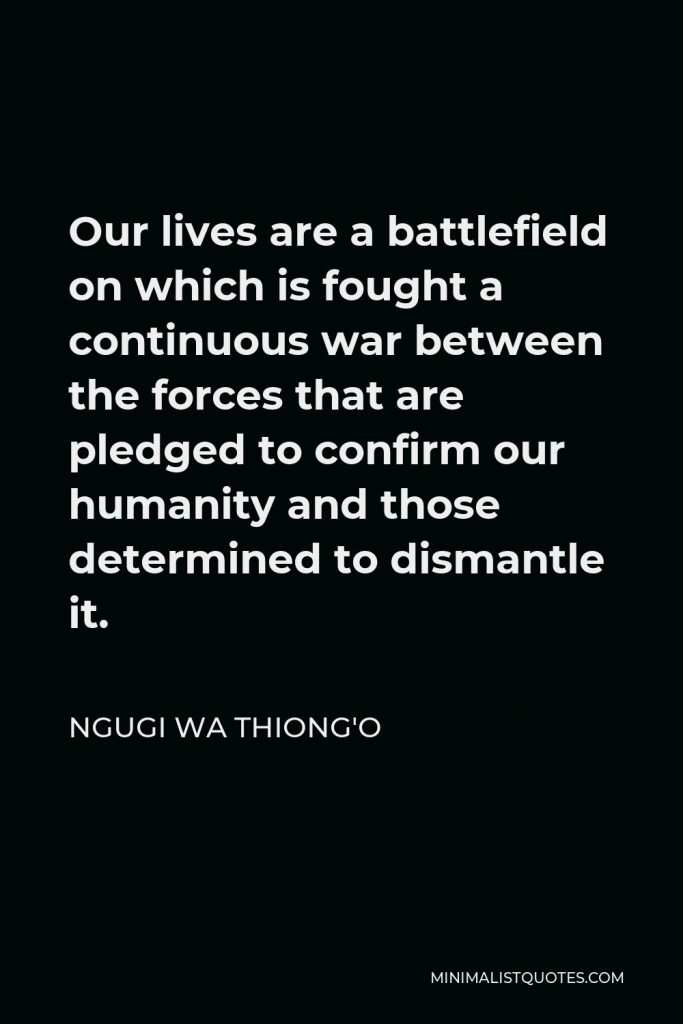

Our lives are a battlefield on which is fought a continuous war between the forces that are pledged to confirm our humanity and those determined to dismantle it.
NGUGI WA THIONG'O -





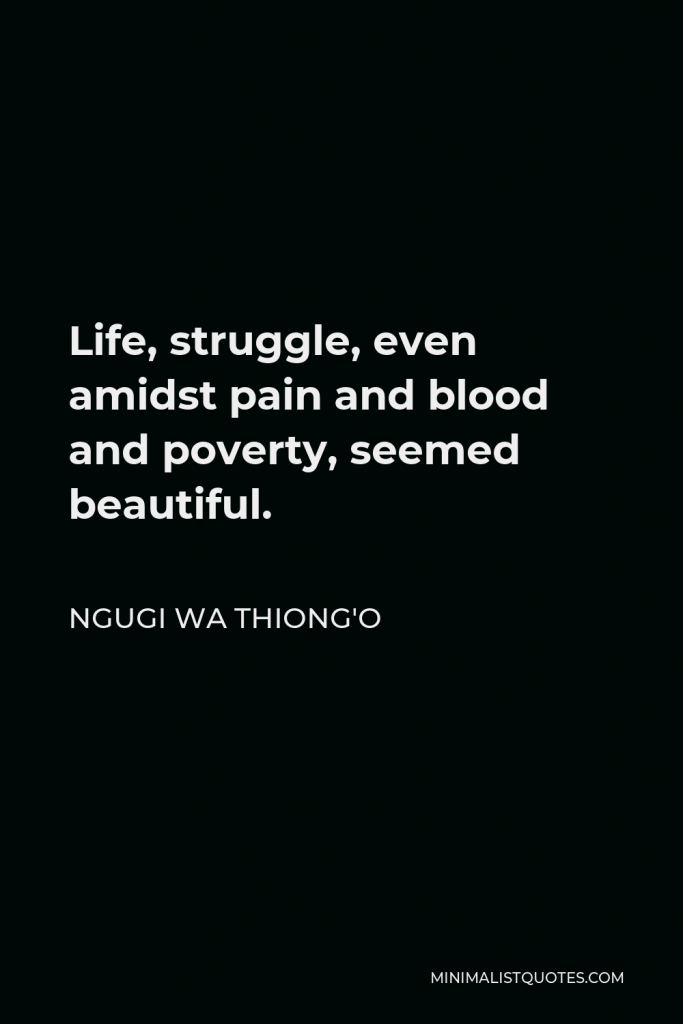

Life, struggle, even amidst pain and blood and poverty, seemed beautiful.
NGUGI WA THIONG'O -





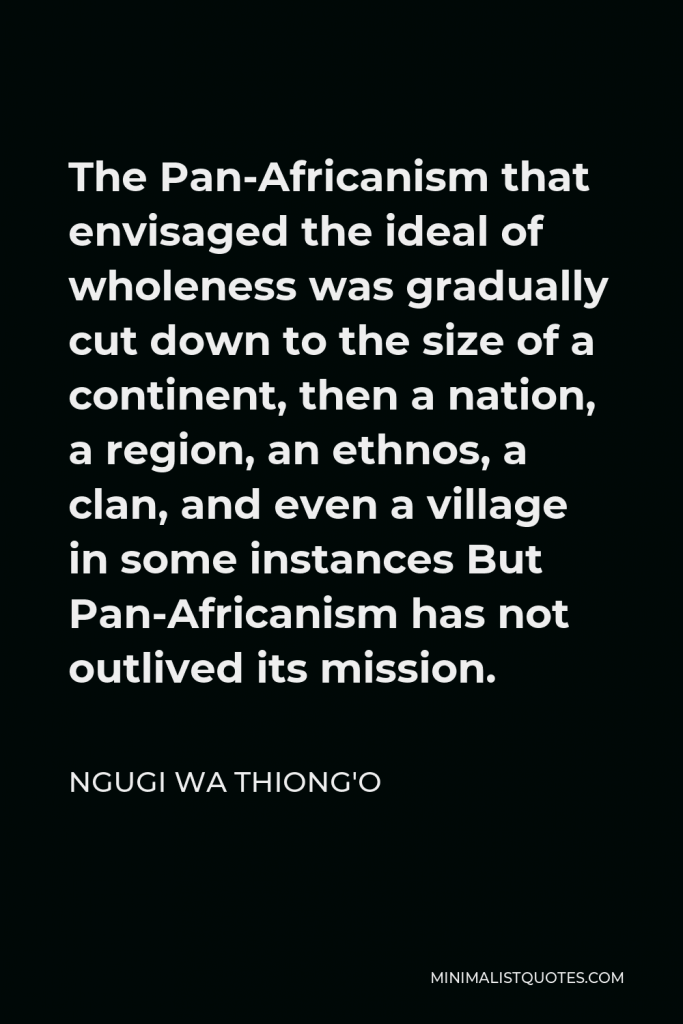

The Pan-Africanism that envisaged the ideal of wholeness was gradually cut down to the size of a continent, then a nation, a region, an ethnos, a clan, and even a village in some instances But Pan-Africanism has not outlived its mission.
NGUGI WA THIONG'O
